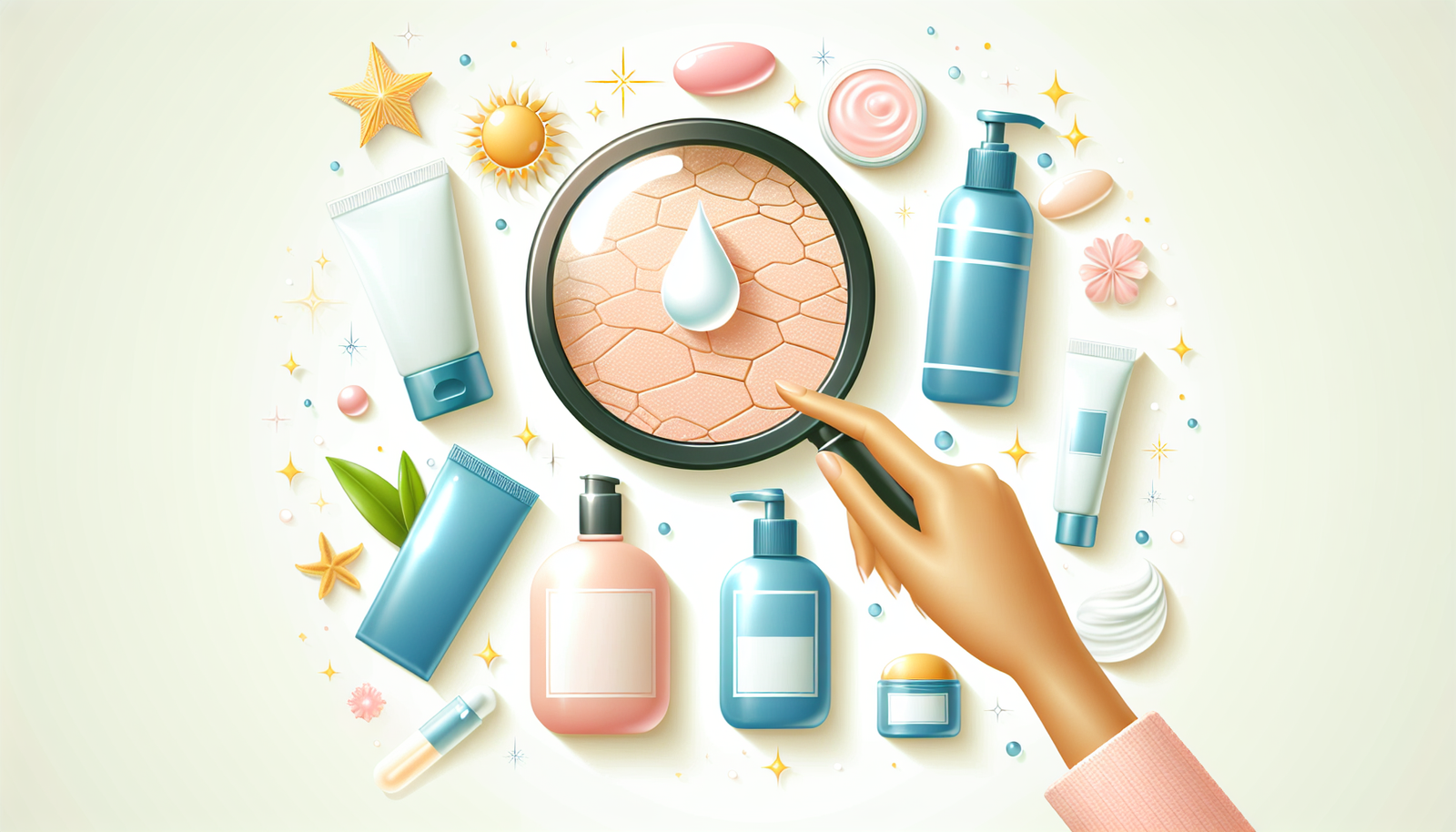How Sleep Affects Your Skin Health
Understanding Sleep and Its Importance
The Science of Sleep
Sleep is a vital function that allows our bodies to recharge and repair. It is during sleep that our body goes through various restorative processes, including the regulation of hormones and the repair of cells. The average adult needs between 7 to 9 hours of sleep per night, although individual needs can vary.
Sleep Stages
Understanding the stages of sleep can provide insights into how it affects skin health. Sleep is divided into two main types: Rapid Eye Movement (REM) sleep and non-REM sleep.
Non-REM Sleep
This stage accounts for about 75% of our sleep and involves three sub-stages. The first stage is light sleep, where you drift in and out of sleep. The second stage sees your heart rate and breathing slow down, and the body prepares for deep sleep. The third stage is deep sleep, a critical phase for physical restoration, muscle growth, and repair.
REM Sleep
This stage is essential for brain function and emotional well-being. During REM sleep, the brain is very active, which is when most dreaming occurs. This phase plays a crucial role in memory retention and emotional processing.
The Link Between Sleep and Skin Health
Skin Regeneration During Sleep
Your skin undergoes a significant amount of repair while you sleep. Cells regenerate and collagen production is stimulated, leading to improved elasticity and reduced signs of aging.
Collagen Production
Collagen is a protein that helps maintain the skin’s structure. During deep sleep, the body ramps up collagen production, helping to fill in fine lines and wrinkles, making the skin appear plumper and more youthful.
Cellular Repair
Skin cells repair and regenerate during sleep, shedding dead skin cells and allowing newer, healthier cells to take their place. This process contributes to skin clarity and can help in reducing issues like acne and blemishes.
The Effects of Sleep Deprivation on the Skin
When we don’t get enough sleep, our skin suffers. Sleep deprivation triggers a cascade of negative effects that can lead to various skin issues.
Increased Inflammation
Lack of sleep can increase inflammation in the body, leading to skin conditions like eczema and psoriasis. Inflammation can trigger redness, puffiness, and exacerbate existing skin conditions.
Dark Circles and Puffiness
One of the most visible effects of sleep deprivation is the formation of dark circles and puffy eyes. The skin under the eyes is thinner and more delicate, making it prone to showing signs of fatigue and lack of sleep.
Accelerated Aging
Chronic sleep deprivation can accelerate the aging process of the skin. Lack of sleep affects the production of growth hormones that are essential for repairing skin tissues, leading to premature wrinkles and sagging skin.
Hormonal Changes Related to Sleep
Sleep and Stress Hormones
Stress and poor sleep are closely linked. Poor sleep increases cortisol levels, the body’s primary stress hormone. High cortisol levels can lead to various skin problems, including acne and other inflammatory skin issues.
Acne and Cortisol
Cortisol can stimulate oil production in the skin, which can lead to clogged pores and increased acne outbreaks.
Sleep and Growth Hormones
During sleep, particularly deep sleep, the body releases growth hormones that play a vital role in cell regeneration and tissue repair. Less sleep results in diminished growth hormone levels, creating a slower repair and regeneration process for skin cells.
Skin Conditions and Sleep
Acne
Sleep deprivation can exacerbate acne by increasing cortisol, which in turn can heighten oil production. Furthermore, lack of sleep can impair immune function, making it harder for the body to combat bacteria that contribute to breakouts.
Psoriasis and Eczema
These chronic skin conditions can worsen with sleep deprivation. Stress and inflammation increase due to lack of sleep, leading to flare-ups. Proper sleep hygiene can play a pivotal role in managing these conditions.
Rosacea
For those suffering from rosacea, inadequate sleep can lead to worsening symptoms like redness and flaring. Sleep helps regulate blood flow; without it, the skin can become increasingly reactive.
The Role of Sleep Quality
More than Just Sleep Duration
It’s not only the amount of sleep that matters but also the quality of that sleep. High-quality sleep can make a world of difference for your skin health.
Factors Affecting Sleep Quality
Several factors can impact the quality of your sleep. These include stress levels, sleep environment, and lifestyle habits. A comfortable sleep setting and a calming bedtime routine can significantly improve sleep quality and thus enhance skin health.
Signs of Poor Sleep Quality on Your Skin
Indicators of poor sleep quality often become apparent on your skin. You may notice increased dullness, increased signs of aging, or more pronounced skin conditions.
Improving Sleep for Better Skin Health
Establishing a Sleep Routine
Creating a consistent sleep routine can greatly improve both sleep quality and duration. Going to bed and waking up at the same time each day helps regulate your body’s internal clock.
Wind Down Before Bed
Engaging in relaxing activities before bed, such as reading or practicing meditation, can help signal to your body that it’s time to sleep. Try to limit screen time an hour before bed, as blue light can interfere with the production of melatonin, the hormone responsible for sleep.
Creating a Sleep-Inducing Environment
Your sleep environment plays a major role in the quality of your slumber. Make sure your bedroom is dark, cool, and quiet. Investing in comfortable bedding and using blackout curtains can enhance your sleeping experience.
Addressing Stress
Stress management techniques like yoga, deep breathing, or journaling can help lower cortisol levels and improve sleep quality. Reducing stress can have a direct positive impact on your skin.
Nutrition and Sleep
What you eat can also affect your sleep quality and skin health. Consuming a balanced diet rich in antioxidants, vitamins, and healthy fats can support overall well-being.
Foods to Promote Sleep
Consider incorporating foods that promote better sleep into your diet. Foods rich in magnesium, like leafy greens and nuts, can help relax the body, while sources of tryptophan, such as turkey and dairy products, can support melatonin production.
Hydration Matters
Staying hydrated is crucial for skin health. Dehydration can lead to dry, flaky skin, which can appear dull and tired. Aim to drink enough water throughout the day, but try to limit fluid intake close to bedtime to avoid nighttime disruptions.
Holistic Approaches to Enhance Sleep and Skin Health
The Benefits of Meditation and Mindfulness
Incorporating meditation and mindfulness practices can significantly benefit both sleep and skin health. These practices help reduce stress, manage anxiety, and promote a more restful night’s sleep.
Techniques to Try
Explore various techniques such as guided meditations, mindful breathing exercises, or yoga. These practices can help calm the mind and body in preparation for sleep.
Aromatherapy and Sleep
Aromatherapy can be a useful tool for enhancing sleep quality. Certain essential oils like lavender and chamomile are known for their calming properties.
How to Use Aromatherapy
You can try using essential oils in a diffuser or apply diluted oils to your wrists or temples. A warm bath with a few drops of essential oils can also create a soothing bedtime ritual.
Recognizing Individual Skin Needs
Customizing Your Skincare Routine
Just as everyone has different sleep needs, skin health varies from person to person. Factors like skin type, age, and individual skin concerns should guide your skincare routine.
Morning and Evening Routines
Crafting a tailored skincare routine can enhance your skin’s recovery during sleep. Use rejuvenating products at night, such as serums containing antioxidants, retinol, or hyaluronic acid, to boost skin health.
Consulting Professionals
If you’re noticing persistent skin issues despite getting sufficient sleep, it might be time to consult a dermatologist. They can provide tailored recommendations that align with your specific skin needs.
The Connection to Overall Well-being
Sleep, Skin, and Mental Health
Adequate sleep is essential not only for skin health but also for overall mental well-being. Good sleep hygiene can improve mood, reduce anxiety, and enhance focus.
Building a Healthy Lifestyle
Incorporating regular exercise, balanced nutrition, and stress management techniques can create a positive synergy that benefits both your skin health and your emotional well-being.
Community and Support
Engaging with supportive communities can help you navigate challenges in sleep and skin health. Whether it’s sharing tips with friends or joining online groups, feeling connected can enhance motivation for improving overall health.
Final Thoughts on Sleep’s Impact
The intricate relationship between sleep and skin health cannot be overlooked. By prioritizing quality sleep, you are investing in not only your skin’s future but also your overall health. Remember that every small change can lead to significant improvements over time.






